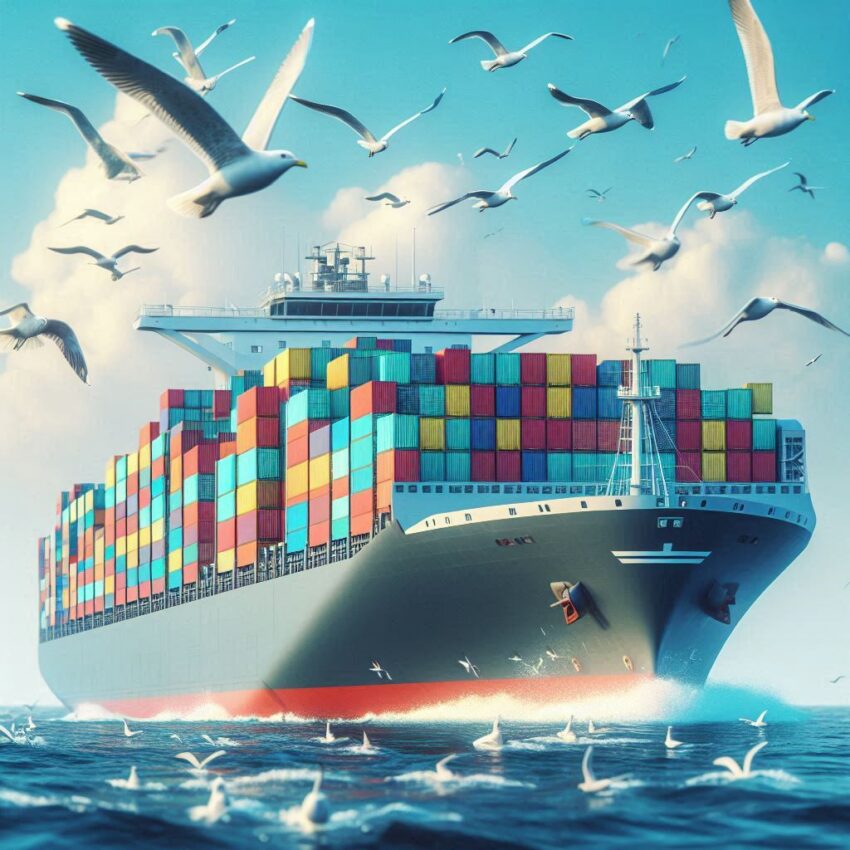 Container shipping remains the backbone of international trade. However, it’s not immune to external factors and disturbances. Among the most unpredictable influences are geopolitical events and trends.
Container shipping remains the backbone of international trade. However, it’s not immune to external factors and disturbances. Among the most unpredictable influences are geopolitical events and trends.
Trade Wars and Their Impact on Shipping
Trade wars significantly affect container shipping. When two or more countries engage in such economic conflicts, it usually leads to tariff impositions and import restrictions. Each decision made under these circumstances can cascade across the supply chain, altering routes, elevating costs, and disrupting schedules.
When countries like the United States and China introduce new tariffs, companies often shift production to other regions to avoid these costs. For shipping companies, this means adjusting their routes to accommodate new manufacturing hubs, often leading to extended delivery times.
Trade wars also breed import limitations which force businesses to find alternative suppliers. This impacts shipping routes, container availability, and even port volumes. Cargo vessels adapt by rerouting to different markets, which often increases transit times and operational complexity.
A trade war may also lead to reduced cargo volumes between conflicting regions. For instance, the recent Sino-American trade tensions resulted in lower volumes of goods being shipped each way. Empty containers, which still bear costs, have become common sights in ports affected by such disputes.
Trade wars unequivocally hike operational expenses for shipping firms. New tariffs and the need to reroute vessels add strains on profitability. Increased tariffs necessitate significant alterations to transport logistics, requiring sophisticated planning and real-time adjustments to operational protocols.
Sanctions and Their Implications
Sanctions serve as another geopolitical factor with profound effects on container shipping. When nations impose sanctions on others, they effectively exclude them from participating in the global market, impacting several areas:
Nations targeted by sanctions often become no-go zones for shipping lines, leading to substantial rerouting. Shipping lines then have to replace previously lucrative paths with longer, less direct routes, leading to increased fuel consumption and time at sea.
Sanctions can involve restrictions on specific goods, impacting container contents. These goods could range from luxury items to essential commodities, leading to a reshuffle in the types of cargo each vessel carries, complicating logistics.
Compliance with international regulations becomes more convoluted with sanctions. Shipping companies need to ensure their vessels comply with various sanctions regimes, impacting insurance policies and increasing paperwork, ultimately leading to higher administrative costs.
Isolated economies due to sanctions may suffer trade deficits, leading to reduced shipping demands. Limited trading capabilities affect shipping lines directly since fewer goods are being transported, resulting in underutilized fleets.
International Relations and Shipping Dynamics
Strong diplomatic relationships often translate into smoother shipping operations. Nations with robust ties negotiate favorable shipping terms, reducing administrative and customs hurdles. Conversely, strained ties can lead to port delays, added scrutiny, and sometimes, outright bans.
Entities like the European Union aim to streamline trade among member states by removing tariffs and simplifying regulations. Such unions boost internal shipping while structuring uniform logistics protocols, maintaining efficiency. Meanwhile, regions without such alliances may struggle with varied and complex customs regulations.
Agreements like the Paris Climate Accord influence maritime regulations, steering shipping practices. These treaties often include mandates for reducing emissions, propelling companies to adopt cleaner technologies and fuels, which can impact costs and operations.
Groups of major shipping companies sometimes form cartels to stabilize shipping rates and reduce competitive pressures. When global geopolitics affects these cartels, it can alter rates and service levels. Changes in international relations may lead to the formation or dissolution of such cartels, further impacting the industry.
Maritime Geopolitical Trends
Several crucial waterways, like the Suez Canal and the Strait of Hormuz, are often points of geopolitical tension. Countries controlling these waterways have significant leverage over global shipping routes. Political unrest or military activities in these regions can drastically disturb shipping schedules and increase transit costs.
Piracy remains a severe threat, especially where weak governance exists. Regions such as the Gulf of Aden see frequent pirate activities, necessitating rerouting and increased security measures. These additional precautions elevate shipping costs and can add delays.
Nations invest in expanding and upgrading port facilities to support increased trade volumes. Geopolitical alliances often drive these investments. Some countries may receive funding and technical aid to develop their ports, enhancing their logistical capacities, while others, due to strained relations, miss out.
China’s Belt and Road Initiative exemplifies how infrastructure development can influence maritime shipping. By investing in ports across Asia, Africa, and Europe, China aims to streamline logistics, enhancing its influence. This trend has led to shifts in trade routes and, consequently, shipping operations.
Geopolitics and Shipping Insurance Considerations
Geopolitics affects insurance policies for shipping companies. Insurance premiums often fluctuate based on political stability and risk perception.
Shipping companies operating in politically volatile areas often require political risk insurance. This covers risks such as expropriation, political violence, and government interference. These policies are critical in high-risk zones but come with elevated premiums.
Regions experiencing armed conflicts see steep rises in insurance premiums. War risk insurance becomes necessary for vessels passing through these zones, adding to operational costs. Shipping companies often pass these costs on to their clients.
Insurance companies must ensure that they comply with international sanctions. This compliance leads to complex validation processes for policies, often causing delays and increased administrative work for shipping firms.
Technological Adaptations in Response to Geopolitical Trends
Autonomous shipping technology is gaining traction. These vessels can reroute in response to real-time geopolitical events without needing human intervention, reducing the risk to crew and improving operational efficiency.
Blockchain technology is increasingly used to improve transparency in the shipping process. It ensures compliance with international sanctions and regulations by providing an immutable record of the cargo’s journey, enhancing trust and reducing disputes.
Predictive analytics help shipping companies anticipate and respond to geopolitical changes. By analyzing data on trade volumes, political events, and route risks, companies can make informed decisions, optimizing routes and reducing delays.
Environmental regulations often arise from geopolitical agreements. To comply, shipping companies adopt green technologies such as cleaner fuels and emission reduction systems. Though initially expensive, these technologies reduce long-term operational costs and ensure compliance with international regulations.
Corporate Strategies and Geopolitical Adaptation
Companies diversify their shipping routes to minimize dependency on any single path. This reduces the impact of geopolitical disruptions in specific regions, ensuring a continuous flow of goods.
Forming alliances with local companies in different regions helps shipping firms navigate complex customs and regulations. These partnerships often provide insights and support that mitigate the risks associated with geopolitical instability.
Investing in resilient infrastructure, such as robust vessels and secure facilities, enables companies to endure geopolitical disruptions and maintain service reliability.
Implementing robust risk management practices allows shipping companies to identify potential geopolitical risks early and develop contingency plans. This proactive approach ensures swift and effective responses to geopolitical changes.
Geopolitical Impacts on Shipping
The recent trade war between the United States and China led to significant shifts in shipping routes. Companies redirected their logistical operations to countries like Vietnam and Indonesia, creating new opportunities but also new challenges for shipping firms.
The blockage of the Suez Canal by the Ever Given vessel in 2021 highlighted the geopolitical importance of strategic waterways. The interruption affected global supply chains, leading to delays and increased costs, underscoring the need for alternative routes and better crisis management.
Sanctions on Iran have significantly affected shipping operations in the Middle East. Companies rerouted their vessels to avoid Iranian waters, leading to longer transit times and higher operational costs. The sanctions also led to increased demand for insurance coverage, raising premiums for shipping firms operating in the region.


